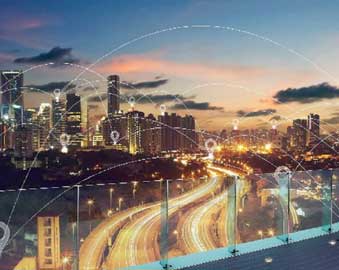The Future of GPS Tracking
Posted by Kellie Kendall on Apr 25th 2024
Mapping The Future: The Evolution of The GPS Tracking Device

A sneak peek at the next generation of GPS technology
Key Takeaways:
- GPS trackers are increasingly used by businesses and individuals for asset and vehicle tracking.
- Future devices will become smaller and more efficient, with longer battery life due to advancements in battery tech.
- GPS software has improved, allowing real-time tracking of multiple devices with greater mapping precision.
- GPS tracking technology has become more affordable, making it accessible to both small businesses and individuals.
- Continued advancements will further enhance accuracy, scalability, and affordability of GPS solutions for diverse uses.
Technology moves at a rapid pace, and the world of GPS tracking is no exception. Trackers are smaller and more powerful than ever, and these devices continue to evolve and improve. If you're not familiar with the latest advancements in GPS technology, you may be in for a surprise. This area is in a constant state of development, and the future holds some interesting developments for GPS tracking. Let's take a peek at what lies ahead for various aspects of GPS technology.
Widespread Usage

More and more businesses are turning to GPS technology as an effective way to manage their vehicles, their employees and their assets. Businesses use GPS vehicle tracking to assess driver performance and to keep tabs on important executives while they're traveling. As the devices become smaller and more accurate, it's a safe bet that even more businesses will begin to utilize these powerful tools.
GPS trackers have also become more commonly accepted for personal use. Parents with inexperienced teen drivers rely on these devices to monitor their child's use of the family car. Trackers can help ensure the safety of elderly family members or loved ones with special needs: with real-time GPS tracking data available at your fingertips, you'll never have to worry about these individuals wandering from their homes. Some pet owners even add a GPS tracker to their pet's collar in case the animal gets lost. As GPS devices become more and more affordable, the future is likely to hold a big increase in personal tracking use.
Smaller Size, Longer Life

When you think about the next generation of tracking devices, you might envision the sort of futuristic gadgets commonly seen in the movies. Real GPS technology hasn't quite caught up to these fictional devices: today's trackers aren't as small as the ones imagined by Hollywood, and they can't be implanted under someone's skin. The most compact GPS tracking devices available today are smaller than a cell phone, but experts predict that these trackers could eventually shrink to the size of a quarter. The size of a tracker's battery limits how small the device can be; while a tiny thumbnail-sized receiver could be developed, the GPS tracking device itself would need to be larger to accommodate the battery. As battery technology continues to evolve, GPS trackers should keep getting smaller.
In the past, the effectiveness of a GPS tracking device was hampered by its need for frequent battery charges. Today, the best trackers can go up to 30 days without a recharge; if you need to go even longer between charges, extended battery packs can provide up to 6 months of uninterrupted use.
Advancements in Software

Not only have GPS devices undergone rapid development in recent years, but the software that works with these devices has also made great strides. Real-time data on the specific location of any tracked vehicle or asset has proved invaluable to the shipping and aviation industries. Improved mapping capabilities, combined with the ability to integrate with resources such as Google Earth, can render finely detailed, accurate maps for nearly any location in the world.
Earlier incarnations of GPS tracking software were only able to keep tabs on one device at a time. Today's more sophisticated software can track multiple devices, allowing users to monitor an entire fleet of vehicles on a single screen. As technology continues to improve, it's likely we'll see even more accuracy and scalability from tracking software in the future.
Affordable Prices

GPS trackers are no longer a luxury reserved for the largest companies and government agencies. As prices have come down, these devices are now within reach for smaller businesses and even individuals. If you've always assumed that vehicle GPS tracking or asset tracking was too pricey for your business, you may want to give this technology a second look: the increased productivity and efficiency usually makes the investment worthwhile.
There's never been a better time to invest in a GPS tracking device. These devices are more compact than ever; as battery technology continues to evolve, trackers are likely to shrink even more. GPS devices have become a commonplace tool for both professional and personal use, and with a wide range of affordable price points, there's a device for nearly anyone's needs. The future certainly looks bright for GPS technology, and it will be exciting to watch the developments unfold.
